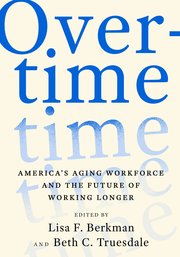Are you planning to retire early or late? What influenced your decision?
Many Americans face a huge decision in the years ahead: is delaying their retirement a realistic, practical and tenable option or should they work longer, in an attempt to be in better financial shape for their retirement? Many policymakers think it is logical – almost inevitable – that Americans will delay retirement and spend more years in the paid labor force.
However, working longer is not a one-size fits all solution especially when you factor in economic and social inequalities, precarious working conditions, family caregiving responsibilities, poor health, and age discrimination. All of these make it difficult or impossible for many to consider working past the age of 65. Marginalized groups in particular face special challenges and society’s legislative responses affect us all. Is there a way to find a path toward better working lives and improved retirement security for all Americans – and if so, what it is?
BETH TRUESDALE has been examining many of these considerations in her book Overtime: America’s Aging Workforce and the Future of Working Longer (co-authored with Lisa Berkman).


Beth Truesdale is a sociologist whose research focuses on inequalities in work and aging, and the future of retirement. She is a visiting scientist at Harvard’s Center for Population and Development Studies, and a research fellow at W E Upjohn Institute for Employment Research.
Join the conversation. Support our ongoing Zoom and in person events and radio series. Sign up to receive our free newsletter. Contribute $100 or more and receive invitations to special Cambridge Forum events.
Make a contribution now online via Paypal.
Select Cambridge Forums are now available as free podcasts.
Find our podcast on iTunes, subscribe in an RSS reader, or subscribe by email.


